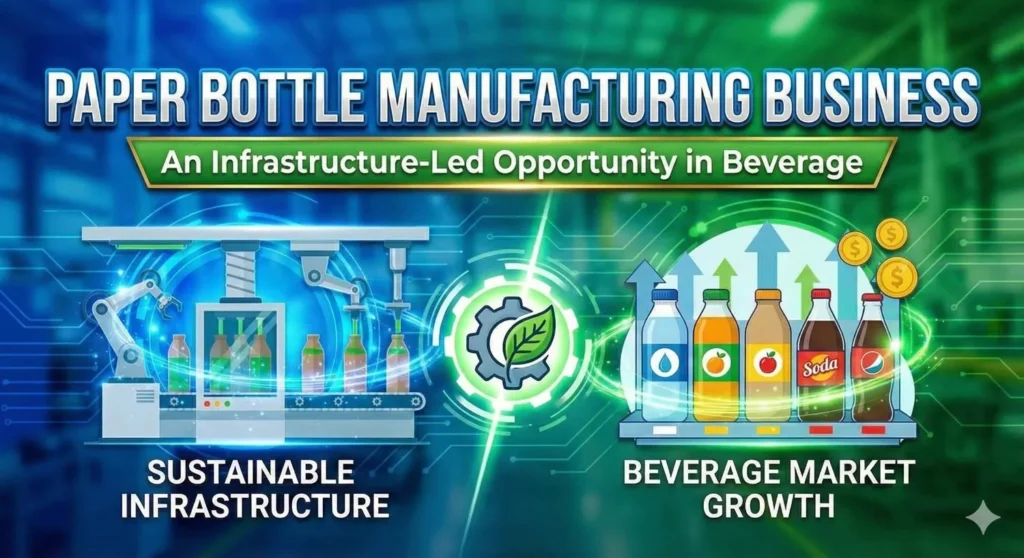
Energy dense food refers to foods that provide a high number of calories per gram or serving. These foods are rich in fats, carbohydrates, or both, making them excellent for individuals needing increased calorie intake. Whether you’re an athlete, recovering from illness, dealing with malnutrition, or trying to gain healthy weight, energy-dense foods play a vital role in your diet.
In this comprehensive guide, we will explore what energy dense foods are, who should consume them, and which food options are considered the best sources of healthy energy density. By the end, you’ll know how to include these foods in a balanced and effective way.
Visit this Page for More Information: Start a Business in Cereal Processing Industry
Contents
What is Energy Dense Food?
Energy dense food is defined by its high caloric content relative to its weight or volume. While low-energy-dense foods like fruits and vegetables contain fewer calories per gram, energy-dense foods pack more calories in smaller portions. For example, a tablespoon of peanut butter contains more calories than a cup of lettuce.
Read Similar Articles: CEREAL FOOD PROCESSING
Why it matters:
-
Supports healthy weight gain
-
Essential for people with high metabolic needs
-
Useful in meal planning for those with poor appetite
-
Helps athletes meet their energy demands efficiently
However, it’s important to distinguish between healthy energy-dense foods (like nuts and seeds) and unhealthy options (like fried snacks or sugary desserts).
Watch Video: Food Fortification Business | Micronutrient Fortified Blended Energy Dense Food Manufacturing
Who Needs Energy Dense Foods?
Energy-dense foods are not for everyone. They are specifically beneficial for individuals who require more calories than average, including:
1. Athletes and Bodybuilders
Intense training burns a lot of calories, and energy dense food helps replenish energy without needing to eat huge volumes of food.
2. Children and Teenagers
Growing bodies often require more nutrients and calories per day. Kids with poor appetite or rapid growth phases benefit from concentrated sources of energy.
3. People Recovering from Illness or Surgery
During recovery, the body needs extra energy and nutrients to rebuild tissues, which makes energy dense food important in hospital or home-based nutritional therapy.
4. Individuals with High Metabolism or Eating Disorders
Some people naturally burn calories faster and need energy-rich meals to maintain or increase body weight.
Related Project: Micronutrient Fortified Energy Dense Food Manufacturing Business
Healthy Energy Dense Food Options
It’s essential to focus on nutrient-rich and healthy energy dense foods to avoid unhealthy weight gain or nutritional imbalances.
1. Nuts and Nut Butters
Almonds, walnuts, cashews, and peanut butter are loaded with healthy fats, protein, and calories. Just a small handful can add 150–200 calories.
2. Avocados
Rich in monounsaturated fats, avocados are calorie-rich and packed with vitamins like potassium, vitamin E, and fiber.
3. Dried Fruits
Compared to fresh fruits, dried fruits like dates, raisins, apricots, and figs provide more calories in smaller servings. They also supply iron, fiber, and antioxidants.
4. Cheese and Full-Fat Dairy
Cheese, whole milk, yogurt, and cream are high in calories, protein, and calcium. They’re excellent for people looking to gain weight healthily.
5. Whole Grains and Granola
Whole grain bread, brown rice, quinoa, and granola bars are energy-dense carbohydrates that provide sustained energy release.
6. Healthy Oils
Cooking with olive oil, ghee, or coconut oil adds calories to meals without increasing volume. A tablespoon can contain over 100 calories.
7. Seeds
Chia seeds, flaxseeds, and pumpkin seeds are compact in size but high in calories, fiber, and omega-3 fats.
8. Dark Chocolate
In moderation, dark chocolate provides both energy and antioxidants. A good option for those with a sweet tooth who want a nutritious boost.
Watch other Informative Videos: Food Processing and Agriculture Based Projects
Unhealthy Energy Dense Foods to Limit
Not all energy-dense foods are beneficial. Some high-calorie items offer little to no nutrition and should be consumed sparingly:
-
Fried snacks (potato chips, pakoras)
-
Sugary desserts (cakes, pastries, candies)
-
Sugary sodas and sweetened beverages
-
Processed meats and junk food
These options may add weight, but not in a healthy way. They can also increase your risk of chronic conditions like diabetes, obesity, and heart disease.
Related Feasibility Study Reports: Cereal Processing (Rice, Dal, Pulses, Oat, Wheat), Sugar and value added Products
How to Include Energy Dense Foods in Your Diet
Incorporating energy dense food into your diet should be strategic to avoid unwanted fat gain or nutrient imbalance. Here’s how to do it effectively:
1. Add, Don’t Replace
Instead of removing low-calorie healthy foods, add energy-dense toppings like seeds, cheese, or nuts to salads, oatmeal, and yogurt.
2. Use Healthy Fats in Cooking
Cook vegetables in olive oil or add ghee to dal and curries to increase the calorie content naturally.
3. Snack Smart
Replace low-calorie snacks like popcorn with nut bars, trail mix, or hummus with whole wheat crackers.
4. Focus on Portion Packing
Eat smaller but more calorie-packed meals if you have a poor appetite or difficulty eating large meals.
5. Choose Whole Ingredients
Whole grains, lean meats, and full-fat dairy not only offer energy but also important micronutrients.
Energy Dense Food vs Nutrient Dense Food
While energy dense food focuses on calories, nutrient dense food focuses on vitamins, minerals, and antioxidants per calorie. The goal is to combine both when needed.
Example:
-
Nuts = Energy dense + Nutrient dense ?
-
French Fries = Energy dense but nutrient-poor ?
-
Spinach = Nutrient dense but low in calories ? for weight gain
Choosing the right mix ensures you gain energy without sacrificing overall health.
Conclusion
Energy dense food is a critical part of many dietary strategies—especially for those with high calorie needs. When chosen wisely, these foods can help with weight gain, support muscle building, aid recovery, and improve overall nutrition. From healthy fats and whole grains to nuts, seeds, and dairy, there are numerous options that offer both calories and nutrients in compact servings.
However, balance is key. Make sure to pair energy-dense items with physical activity, hydration, and a diet rich in fruits, vegetables, and proteins. This approach ensures you meet your health goals—whether that’s gaining weight, improving performance, or recovering from illness—without sacrificing long-term well-being.
Read our Books Here: Cereal Food, Cereals and Cereal Products Processing Industry
For More Details: – https://bit.ly/3hANYvg
See More Links:
- Start a Business in Asia
- Start a Business in Potential Countries for Doing Business
- Best Industry for Doing Business
- Business Ideas with Low, Medium & High Investment
- Looking for Most Demandable Business Ideas for Startups
- Startup Consulting Services
- Start a Business in Africa
- Start a Business in India
- Start a Business in Middle East
- Related Videos
- Related Books
- Related Projects
- Related Market Research Reports
NIIR PROJECT CONSULTANCY SERVICES, DELHI
An ISO 9001:2015 Company
ENTREPRENEUR INDIA
106-E, Kamla Nagar, Opp. Mall ST,
New Delhi-110007, India.
Email: npcs.ei@gmail.com
Tel: +91-11-23843955, 23845654, 23845886
Mobile: +91-9097075054, 8800733955
Website: https://www.entrepreneurindia.co
https://www.niir.org




